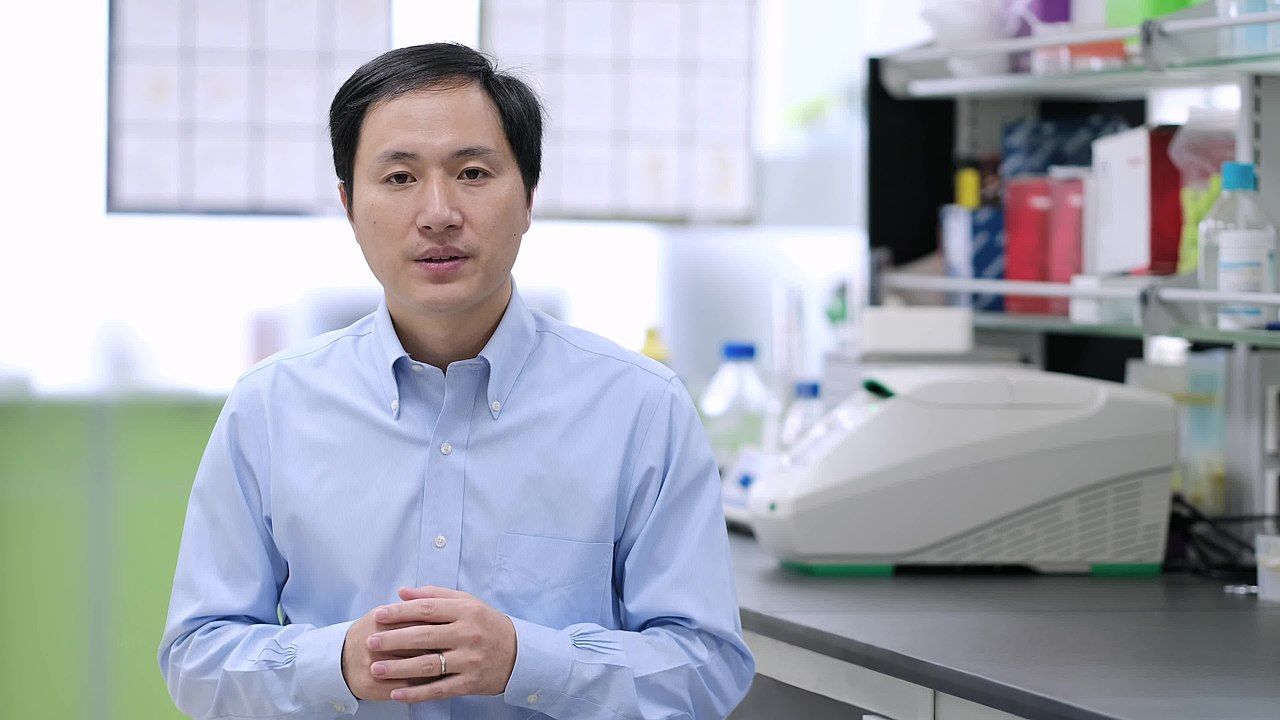Did He Jiankui go a step too far with CRSIPR-edited human embryos?
Global controversy on genetic engineering has been sparked due to reports of the first CRISPR-edited human embryos. In the 2018 International Summit on Human Genome Editing, Chinese researcher He Jiankui presented his experiments on germline editing using CRISPR-Cas9 and announced that two of the women participating in the research are undergoing pregnancy.
Though details published on the research are vague, the response has been swift, and almost unanimously negative. Various scientists across the globe have condemned He Jiankui’s actions on the grounds of safety concerns and the significant risk of tampering with the gene pool for years to come, including Jennifer Doudna, the co-founder of the technology used. In light of this news, Doudna called for a moratorium on research of gene-edited babies. Furthermore, prominent bioethics philosopher Julian Savulescu has called the experiment ‘monstrous’ despite his own stance of regarding genetic engineering for human improvement a moral obligation.
Various scientists across the globe have condemned He’s actions on the grounds of safety concerns and the significant risk of tampering with the gene pool for years to come
CRISPR-Cas9 is a new technology that is potentially revolutionary in the scientific process of gene editing. It is derived from the CRISPR/Cas immune system discovered in bacteria, with the ability to fight viruses. Its primary capability is to precisely identify and cut DNA – when DNA is cut, the gene can be inactivated and new genes can be inserted. Its potential is groundbreaking, as it is predicted to be able to cure viral diseases such as HIV and herpes, cancer, and even genetic disorders such as cystic fibrosis and haemophilia. However, due to the lack of a unified ethical framework and legal barriers, CRISPR has not been employed to edit human genes.
He Jiankui’s experiment was aimed at editing the CCR5 gene into the DNA of the egg cells to be implanted in the mother. A CCR5 mutation called CCR5-delta32 is found naturally in some Europeans as a genetic mutation, granting the person HIV resistance. However, this is not present among the Chinese population, so He’s motivation is to ‘correct’ the gene pool, especially in light of the growing issue of HIV infection in China. The study recruited healthy women and HIV-positive men, and the controversy stems from the fact that it is not an attempt at correcting the genetic makeup of those suffering from illnesses or disorders but would produce babies with a health advantage, if successful.
Crispr-Cas9 is a new technology that is potentially revolutionary in the scientific process of gene editing
He Jiankui’s experiment has not been peer-reviewed, which is the source of much disparagement. The scientific community had not been consulted prior to the research taking place, and thus had no way of modifying current ethical basis on genetic engineering on humans to consider the moral permissiveness of DNA editing purely for a genetic advantage, rather than to cure an existing disease. In addition, ethical approval from the hospital he operated in is claimed to have been forged. Working in secret has not helped He’s reputation and integrity within the scientific community either. Moreover, He paid no attention to China’s medical ethics agency and disregarded far-reaching ethical concerns that may surface in the future. This highlights the risks scientific research faces time and time again: despite various ethical frameworks, there is no global value consensus on where the ethical line is drawn. The impossibility of enforcing a global monitoring system means that scientists can conduct ethically dubious research without much suspicion until results surface and it’s too late.
A larger implication of He Jiankui’s experiment is presented by the ‘slippery slope’ argument. Some scientists interpret this as the beginning of a dystopian future with wealthy families purchasing commercial gene therapy services to produce designer babies, with traits that would genetically predispose them to success: physical attractiveness, high intelligence, super-strength, etc. The argument follows that genetically engineered humans may become the norm. Their advantageous characteristics would propel them to fare better than their competition and enable them to earn more. This may radically widen the income gap and eventually create a world where the poor, now genetically inferior, are subject to oppression of unimaginable scale by the rich.
Working in secret has not helped He’s reputation and integrity within the scientific community either.
Therefore, not only does the experiment emphasise the need for peer review and agreement of values in the scientific community, it also calls for an immediate discussion on the limits to be imposed on genetic engineering for humans: whether it should only attempt to cure diseases, or whether it can be allowed to go further for the good of mankind. Genetically engineered superhumans may become reality sooner than anyone expects.

Comments
Comments are closed here.